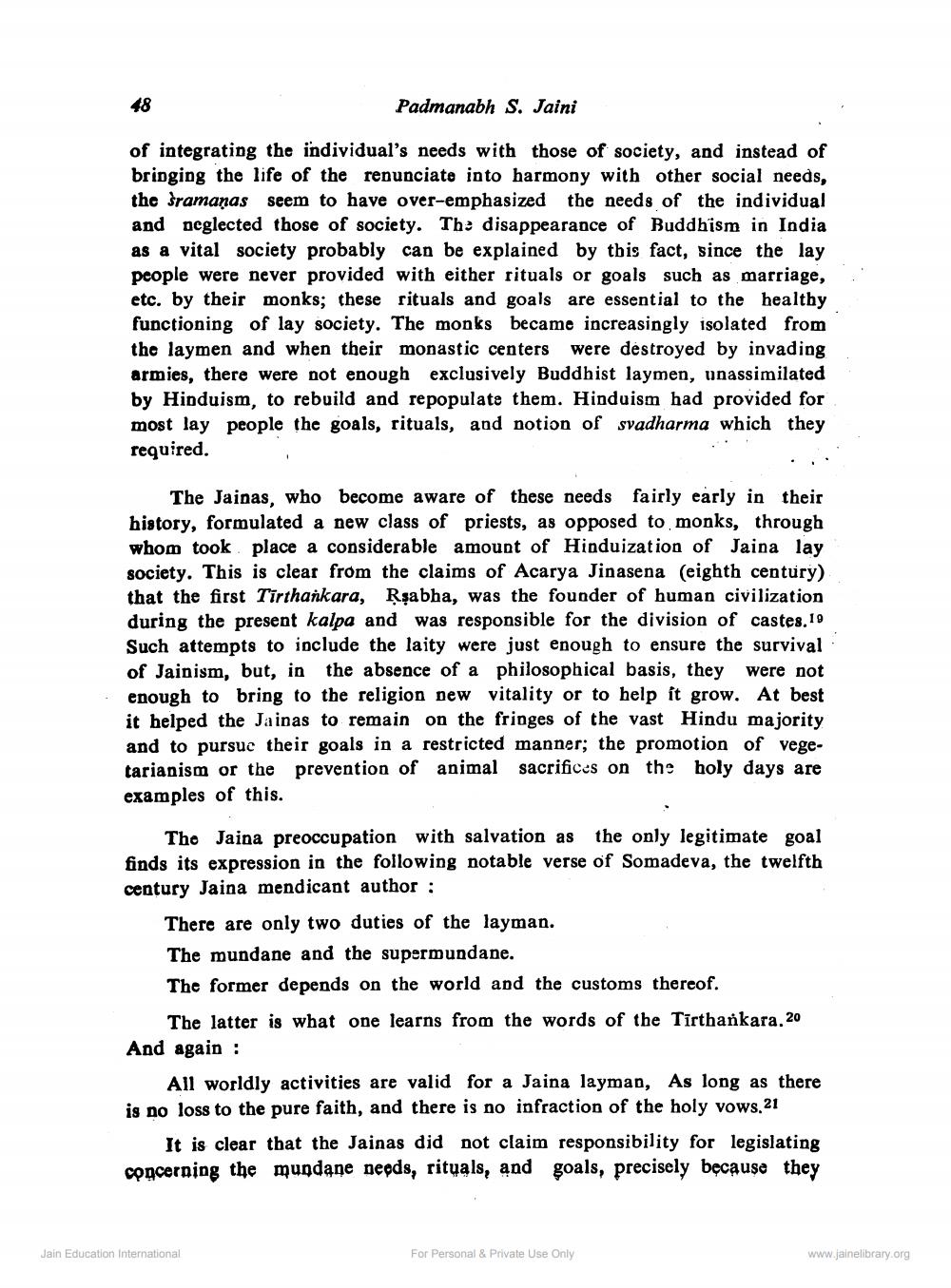________________
48
Padmanabh S. Jaini
of integrating the individual's needs with those of society, and instead of bringing the life of the renunciate into harmony with other social needs, the framanas seem to have over-emphasized the needs of the individual and neglected those of society. The disappearance of Buddhism in India as a vital society probably can be explained by this fact, since the lay people were never provided with either rituals or goals such as marriage, etc. by their monks; these rituals and goals are essential to the healthy functioning of lay society. The monks became increasingly isolated from the laymen and when their monastic centers were destroyed by invading armies, there were not enough exclusively Buddhist laymen, unassimilated by Hinduism, to rebuild and repopulate them. Hinduism had provided for most lay people the goals, rituals, and notion of svadharma which they required.
The Jainas, who become aware of these needs fairly early in their history, formulated a new class of priests, as opposed to monks, through whom took place a considerable amount of Hinduization of Jaina lay society. This is clear from the claims of Acarya Jinasena (eighth century) that the first Tirthankara, Rşabha, was the founder of human civilization during the present kalpa and was responsible for the division of castes. 19 Such attempts to include the laity were just enough to ensure the survival of Jainism, but, in the absence of a philosophical basis, they were not enough to bring to the religion new vitality or to help it grow. At best it helped the Jainas to remain on the fringes of the vast Hindu majority and to pursue their goals in a restricted manner; the promotion of vegetarianism or the prevention of animal sacrifices on the holy days are examples of this.
The Jaina preoccupation with salvation as the only legitimate goal finds its expression in the following notable verse of Somadeva, the twelfth century Jaina mendicant author :
There are only two duties of the layman. The mundane and the supermundane. The former depends on the world and the customs thereof.
The latter is what one learns from the words of the Tīrthankara.20 And again :
All worldly activities are valid for a Jaina layman, As long as there is no loss to the pure faith, and there is no infraction of the holy vows.21
It is clear that the Jainas did not claim responsibility for legislating concerning the mundane needs, rituals, and goals, precisely because they
Jain Education International
For Personal & Private Use Only
www.jainelibrary.org




